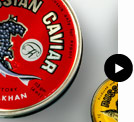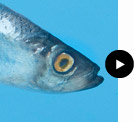An ocean of opportunities
The Netherlands and Russia enjoy a strong relationship when it comes to doing business, creating a growing number of opportunities for both these parties. After all, the Russian market is growing and becoming more open, whilst at the same time the Dutch business environment is becoming more and more attractive for Russians. Alexander Pisaruk at ING expects these ties to expand furthermore as we continue through "the Netherlands-Russia Year" in 2013. In this article he shares his insights on the strong combination of Russian resilience and Dutch flexibility.
The Netherlands may be a small country, but nonetheless in 2012 the Netherlands was the most important investor in Russia .This is also due to the fact that many international companies established themselves in the Netherlands to manage their overseas operations. The country has even surpassed Germany, thanks to its pivotal role in the gas distribution, as Russia's main European trade partner. These two facts are testament to the strong links these two countries hold.
"It is safe to say that the two countries are a good business match," says Alexander Pisaruk, Head of Central & Eastern Europe at ING Commercial Banking. "They share a long history in trade and know-how dating back to the time that Peter the Great visited the Netherlands."
Alexander, who is of Ukrainian descent, knows the Russian and Dutch business communities very well and therefore is able to explain why the two are such a good match. One important explanation is the comparable style of communication. "The Russians and the Dutch have the same direct, no-nonsense way of communicating. They usually tell it like it is. They are direct and to the point. A notable difference however is the fact that it is more normal for Russians to show emotions, whereas the Dutch tend to be more subdued in this respect."
Another difference is the way that plans are made Pisaruk explains. "The Dutch are good at organising. They plan in a procedural and step-by-step way according to a set agenda. Russians are less structured. The way they plan is also more emotional. They often do not meet intermediate targets and suddenly change their plans along the way. But as soon as they have committed to an ultimate goal, they get stuck in, join forces and see to it that everything gets done on time. That is typically Russian." Pisaruk adds that Russians and Dutch people get along well and are capable of achieving a great deal if they accept the emotional differences they have. "Russians appreciate it a lot if you take the time to learn about them and accept them for who they are. If you do that you are likely to make friends. Relationships are very important to Russians."
One of the less-known reasons behind the successful cooperation is the fact that the Dutch are able to adapt well to the whims of the Russians. "As a small group of people, the Dutch are used to having to be flexible. They are able to do this better than most business people from large surrounding European countries. Russians really appreciate this trait."
Russian economy
The Russian economy is becoming more and more attractive to foreign players. On average more than 141 million Russians have seen a significant rise in their disposable income in the past 20 years (see inset: Russian growth 2001-2017). And the economy is now picking up after the financial crisis which hit Russia relatively hard in 2009. In 2010 and 2011 the Russian economy grew 4.3 percent. Even though this growth dampened somewhat in 2012 (3.4 percent), continued prospects of growth remain relatively favourable. ING expects growth figures comparable to 2012 for the coming years. Pisaruk explains that the Russian economy is sensitive to external shockwaves due to its dependency on energy and natural resources. "But the Russian economy has also proved it can weather any crisis well. The economy tends to rebound quickly, quite like the Russians themselves. The big secret of the Russian people is their resilience. Russians are good at bouncing back. This is the result of a history full of ups and downs. Russians were put to the test heavily after the fall of communism, the rouble crisis (1998) and the financial crisis (2008/2009). These were tough lessons for these people, who often had to keep their heads above water by using their savings or restructuring their family finances. They also had to quickly learn how to be enterprising or suddenly switch careers. As a result, the mentality throughout Russia is to take opportunities as soon as they present themselves."
Opportunities for the Netherlands in Russia
Despite being sensitive to external shockwaves, Russia remains an up-and-coming economy. Depending on the sector, the country offers great opportunities, Pisaruk says (see inset: Eight opportunities in Russia). Particularly in these times where there are ample opportunities to enter the market. Not only during "the Netherlands-Russia" year in 2013, but also the Winter Olympics in 2014 and the World Cup in 2018 are on the horizon. "Events like these are a matter of national prestige. The Russians will put on a perfect show and will find the best partners for the job. Now is the time to try and jump on the train," Pisaruk advices to newcomers. "Anyone who becomes a supplier or investor now, will be in the spotlight and build up a strong network for the future because nearly all important Russian players are involved in the organisation."
ING's Head of Central & Eastern Europe does however warn newcomers about the bureaucracy and unfair dealings. "This remains a risk despite the many improvements in this area." Pisaruk adds that investors should expect large regional differences. "Some regions are excellent at facilitating investment with extremely helpful local authorities while others are less accommodating."
The success of a company also depends on the further liberalisation of Russian markets. One encouraging development has been Russia's membership to the World Trade Organisation since August last year. Pisaruk calls this a milestone and expects it to have positive effects. "As a result, in time, import tariffs are expected to drop from around 10 percent to 7.8 percent. One third of this has already been achieved and the rest is yet to come. It is a gradual transition. I expect that the Russian economy will also benefit from this. The WTO membership is an incentive to modernise the economy and become less dependent on energy and natural resources. It forces the Russians to allow foreign investment. Industrial sectors that are currently still heavily subsidised will have to be restructured, however painful that may be."
"Russians could really use the Dutch know-how when modernising their own economy" Pisaruk insists. A good example is food processing. "It is however important that the Dutch don't act like know-it-alls. Russians are proud people."
Opportunities for Russia in the Netherlands
The prospects are not only favourable for Dutch companies with Russian ambitions. The same applies for Russians with aspirations in the Netherlands. Even though the open Dutch economy has been struggling due to problems in the Eurozone, it is continuing to develop into one of the most competitive economies. In its latest Global Competitiveness Report the World Economic Forum (WEF) again commended the competitiveness of the Netherlands. The country climbed from seventh to fifth in the overall ranking (see inset: Competitiveness of the Netherlands 2008-2013). According to the WEF, the improvement reflects a continued strengthening of its innovative capacity as well as the heightened efficiency and stability of its financial markets. The report also praises the country's efficient markets, especially its goods markets, and its sophisticated companies and infrastructure.
These Dutch qualities are no longer a secret to Russian businesses. It is in fact these reasons cited by the WEF that the Netherlands is an interesting place for Russian businesses to set up office. "Russian companies are drawn to the good breeding ground for business. Another impressive reason is the attractive tax climate for holdings. Proof of this can be found in the fact that three of the five largest Russian multinationals have their European headquarters in the Netherlands – take for example a company like mobile provider Vimpelcom," Pisaruk states.
Both economies will become more intertwined, slowly but surely. Russians are investing increasingly in Dutch companies. An example is Argos Oil that was recently acquired by the Russian conglomerate Sistema. Pisaruk is expecting more deals like this in the future. "ING is eager to assist companies with this, being the number one investment bank in the Benelux with a strong position in Russia."
Cultural ties
Pisaruk expects "the Netherlands-Russia Year" in 2013 to further strengthen the economic ties between the countries as Russian and Dutch business people will meet on many occasions, hopefully resulting in further commerce between the nations. ING's Head of Central & Eastern Europe stressed how important it is for the countries to become even closer from a cultural point of view and to learn to understand each other even better. Pisaruk concludes "Right now China mainly comes to mind as an upcoming country, but Russia may have more to offer the Netherlands in the long term. .
Opportunities in Russia
Big events
The 2014 Winter Olympics in Sochi will involve a lot of work for infrastructure and building companies. The official delivery plan lists 218 projects that need to be constructed. Another huge event that brings serious business opportunities is the 2018 FIFA World Cup.
Middle class
Russia has a large consumer market. The country has an enormous population of 142 million, with personal incomes on the rise in this emerging market. People spend more on private housing and non-essential consumer goods, such as flowers from the Netherlands.
Modernising the economy
To attract more foreign capital, the Russian Ministry of Economic Development has established 20 Special Economic Zones (SEZ). These areas are more free market-oriented. An example of an SEZ is the Khabarovsk Region in the eastern part of Russia which provides opportunities for infrastructural and port-related activities.
A promising sector is information technology and telecommunications. The country's software development outsourcing industry is booming, particularly in the cities of Moscow, St. Petersburg and Tomsk.
Russia is investing in the modernisation of its industrial and agricultural sectors. This means opportunities for agricultural companies, the food processing industry and machine builders.
For more information on the Special Economic Zones, go to: http://www.economy.gov.ru
Opportunities in the Netherlands
Safe haven
The Netherlands is a safe haven for holding companies. The European headquarters of three of the five largest Russian companies can be found here. The country has a highly developed financial industry to serve multinationals.
Infrastructure
The Dutch infrastructure is among the best in the world, reflecting excellent facilities for maritime, air and railroad transport. The Port of Rotterdam is the largest port in Europe and it aims to become 'the Energy Port of North-West Europe'. Schiphol is one of the four busiest airports in Europe.
Energy and water
The Netherlands has a good reputation in the field of water management, especially when it comes to protecting its vulnerable delta. The government has declared 'water' to be a Top Sector, one of the nine sectors that are a priority for further development. Another strong area of Dutch expertise is the production and distribution of natural gas. Dutch companies work together well with their Russian counterparts, such as Gazprom.
Innovative companies
The Netherlands is home to many efficient and innovative companies, for example in the agricultural sector and the food-processing industry. Another good example is electronics, with high-tech companies like Philips and ASML in Eindhoven (the so-called 'Brainport region' of the country).
For more information on the Dutch Top Sectors, go to: http://www.government.nl/issues/entrepreneurship-and-innovation/investing-in-top-sectors



